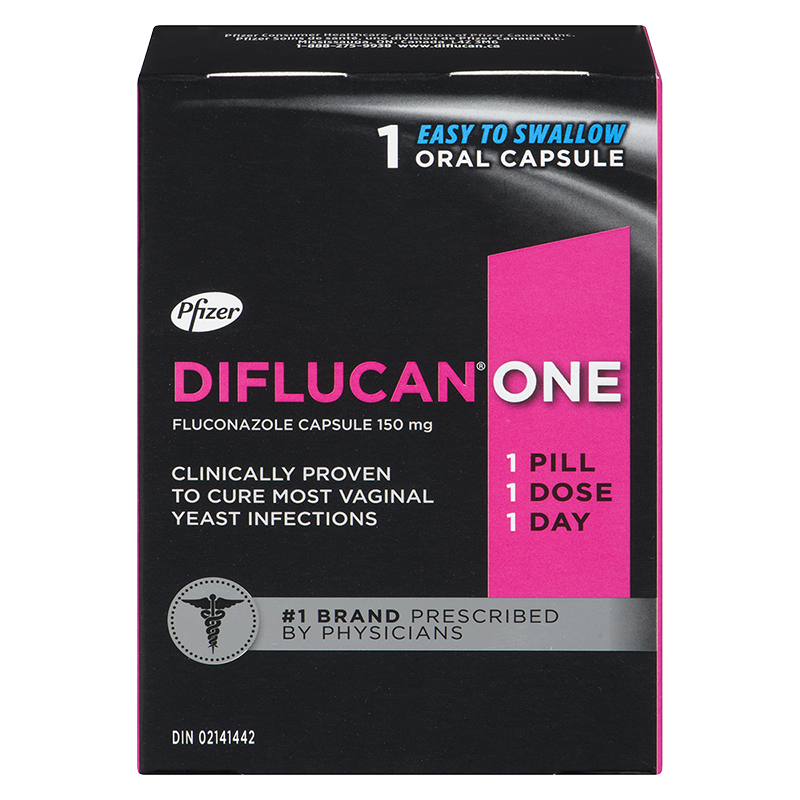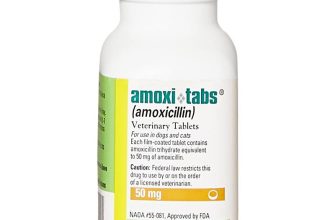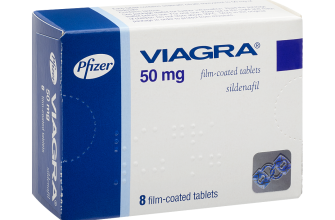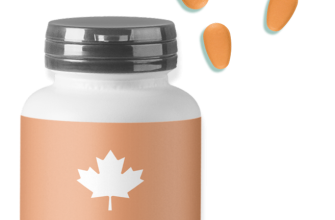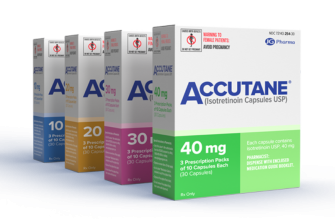When dealing with fungal infections, Diflucan (fluconazole) stands out as a reliable treatment option available in Canada. It’s particularly effective against infections like candidiasis and cryptococcal meningitis. If you suspect a fungal infection, consulting a healthcare professional for a proper diagnosis and treatment plan is key. They can prescribe Diflucan if it’s suitable for your condition.
In Canada, Diflucan is typically available in both oral and intravenous forms, making it accessible for various treatment needs. Dosage often depends on the type and severity of the infection. Follow your doctor’s instructions closely to ensure the best outcomes. Pro tip: Complete the entire course of treatment, even if symptoms improve, to prevent recurrence.
Both prescription and over-the-counter options help facilitate easy access to this medication in most pharmacies. Ensure you check for possible interactions with other medications you may be taking, and report any side effects to your healthcare provider promptly. This attention to detail enhances your safety and the overall success of your treatment.
- Diflucan in Canada: A Comprehensive Overview
- Availability and Costs
- Dosage and Usage Guidelines
- Understanding Diflucan: Uses and Benefits
- How to Obtain Diflucan in Canada: Prescription and Availability
- Prescription Process
- Cost and Insurance
- Potential Side Effects of Diflucan: What You Should Know
- Comparing Diflucan with Other Antifungal Medications
- Cost and Insurance Coverage for Diflucan in Canada
Diflucan in Canada: A Comprehensive Overview
Access Diflucan in Canada through pharmacies with or without a prescription. This antifungal medication is primarily used to treat infections caused by fungi and yeast, such as candidiasis and cryptococcal meningitis.
Availability and Costs
In Canada, Diflucan is available in various forms, including oral tablets and injections. Prices may vary, typically ranging from $25 to $100 depending on the pharmacy and whether you have insurance coverage. Generic versions, like fluconazole, provide a more affordable option.
Dosage and Usage Guidelines
Follow prescribed dosages closely. Adults usually receive a starting dose of 150 mg for yeast infections, followed by 150 mg weekly if necessary. Always consult a healthcare provider before making any adjustments. Monitor for common side effects such as headache, nausea, and diarrhea. Report any severe reactions immediately.
Ensure regular follow-ups with your healthcare professional to track your progress and adjust treatment as needed. Staying informed about your medication will help optimize your health outcomes.
Understanding Diflucan: Uses and Benefits
Diflucan, or fluconazole, treats a variety of fungal infections with precision. It primarily targets yeast infections, such as those caused by Candida species. Patients can rely on Diflucan for treating vaginal yeast infections and oral thrush, addressing discomfort effectively.
This medication also plays an integral role in fighting systemic fungal infections, particularly in immunocompromised individuals, such as those undergoing chemotherapy or living with HIV/AIDS. Its ability to penetrate tissues and reach the bloodstream makes it a reliable option for severe instances of infection.
Taking Diflucan is uncomplicated. It is available in both oral tablets and intravenous formulations, catering to different patient needs. The common oral dose for uncomplicated infections often starts at 150 mg, with adjustments based on the infection type and patient response. Quick absorption means relief can often come swiftly.
Additionally, Diflucan minimizes the risk of recurrent infections due to its long half-life. A single dose for certain types of infections often suffices, reducing the need for prolonged treatment plans and enhancing adherence.
While side effects are generally mild, awareness of potential reactions, such as headache or gastrointestinal upset, is essential. Patients should always communicate with healthcare providers regarding existing medical conditions or other medications to ensure safety.
In summary, Diflucan serves as a significant ally in the fight against fungal infections, providing both convenience and effectiveness for various patient populations. Regular consultations with healthcare professionals help optimize its use while managing any concerns that may arise.
How to Obtain Diflucan in Canada: Prescription and Availability
To obtain Diflucan (fluconazole) in Canada, you must secure a prescription from a licensed healthcare provider. Schedule an appointment with your doctor or a pharmacist who can assess your condition and determine if Diflucan is appropriate for you. Online consultations are also available through various telemedicine platforms, which can expedite the process.
Prescription Process
Your healthcare provider will evaluate your symptoms and medical history. If prescribed, you will receive a prescription that you can take to any pharmacy. Canadian pharmacies typically stock Diflucan, making it readily available. Confirm with the pharmacy to ensure they have it in stock before heading over.
Cost and Insurance
The cost of Diflucan may vary based on the pharmacy and whether you have insurance. If you have a prescription drug plan, check if Diflucan is covered to help reduce out-of-pocket expenses. If you are without insurance, inquire about generic options or discounts available at your pharmacy. Taking these steps will ensure you have access to needed treatment efficiently and affordably.
Potential Side Effects of Diflucan: What You Should Know
Monitor for common side effects such as nausea, headache, and abdominal pain. Many people experience these mild reactions, which typically resolve quickly. If symptoms persist or worsen, contact your healthcare provider for advice.
Serious side effects are less common but can occur. Be aware of signs like yellowing of the skin or eyes, which may indicate liver issues. Rash or unusual bleeding may signify allergic reactions. Seek medical attention immediately if you experience any of these symptoms.
| Side Effect | Symptoms | Action |
|---|---|---|
| Nausea | Feeling sick or queasy | Consult your doctor if severe |
| Headache | Pain in the head or neck | Over-the-counter pain relief or medical advice |
| Abdominal Pain | Pain in the stomach area | Contact your doctor if persistent |
| Liver Issues | Yellowing of skin or eyes | Seek immediate medical attention |
| Allergic Reactions | Rash, itching, or unusual bleeding | Seek medical help immediately |
Discuss with your doctor prior to starting Diflucan, especially if you have existing liver conditions or are taking other medications. Provide your healthcare provider with a complete list of current medications to avoid potentially harmful interactions.
Follow your prescription regimen closely. Do not adjust dosages without consulting your healthcare provider. Regular follow-ups may be necessary to monitor your response to treatment and any side effects you might experience.
Comparing Diflucan with Other Antifungal Medications
Diflucan (fluconazole) stands out as a preferred choice for treating various fungal infections due to its broad spectrum of activity and favorable oral bioavailability. It effectively combats infections like candidiasis and cryptococcal meningitis. Patients appreciate the convenience of dosing; a single dose often suffices for mild infections.
In comparison, other antifungal medications such as itraconazole and voriconazole offer different applications and mechanisms. Itraconazole is primarily effective against cryptococcal infections and some dermatophytes, but it requires more careful monitoring due to variable absorption, particularly with food interactions. Voriconazole excels in treating invasive aspergillosis but may involve more side effects and drug interactions, requiring healthcare providers to assess the patient’s medication regimen thoroughly.
Topical antifungals like clotrimazole and miconazole serve well for localized infections but don’t match the systemic reach of Diflucan. While effective for conditions like athlete’s foot or ringworm, these agents are not suitable for deeper or systemic infections.
The safety profile of Diflucan is another advantage, generally causing fewer liver-related side effects than some alternatives like ketoconazole. Patients undergoing long-term treatment with Diflucan typically monitor liver function less frequently. This aspect is invaluable when considering treatment duration, especially in immunocompromised patients.
When selecting an antifungal treatment, the specific type of fungal infection, patient health status, and potential drug interactions are critical factors. For most systemic fungal infections, Diflucan remains a go-to option, though alternatives may be important in specific cases or with resistant organisms.
Always consult a healthcare professional for personalized advice tailored to individual health needs and treatment plans.
Cost and Insurance Coverage for Diflucan in Canada
The average retail price of Diflucan (fluconazole) in Canada ranges from CAD 3 to CAD 10 per pill, depending on the pharmacy and dosage. For a standard course of treatment, which typically lasts 7 to 14 days, total costs can amount to CAD 21 to CAD 140. Discount programs and generic options are available, often reducing the expense significantly.
Many Canadian provinces offer comprehensive drug coverage through public health programs. To determine eligibility, check with provincial health services, as coverage can vary based on factors like age, income, and specific health conditions.
- Ontario Drug Benefit (ODB) Program: Covers eligible seniors and individuals on social assistance.
- British Columbia: Provides coverage through PharmaCare, depending on income and family status.
- Alberta: Offers coverage for those with a valid AHCIP card, especially for low-income individuals.
Private insurance plans also frequently cover Diflucan. Review your policy documents to confirm the specifics of your coverage, including co-pays and deductibles. Contact your insurance provider for clarification on conditions that might affect reimbursement for Diflucan.
If you lack insurance, consider pharmacy discount cards or programs, which can lower the price of medications like Diflucan. Some pharmacies offer loyalty programs that provide additional savings.
Always discuss with your healthcare provider before starting treatment, as they can help you explore the most affordable options and navigate insurance complexities.

